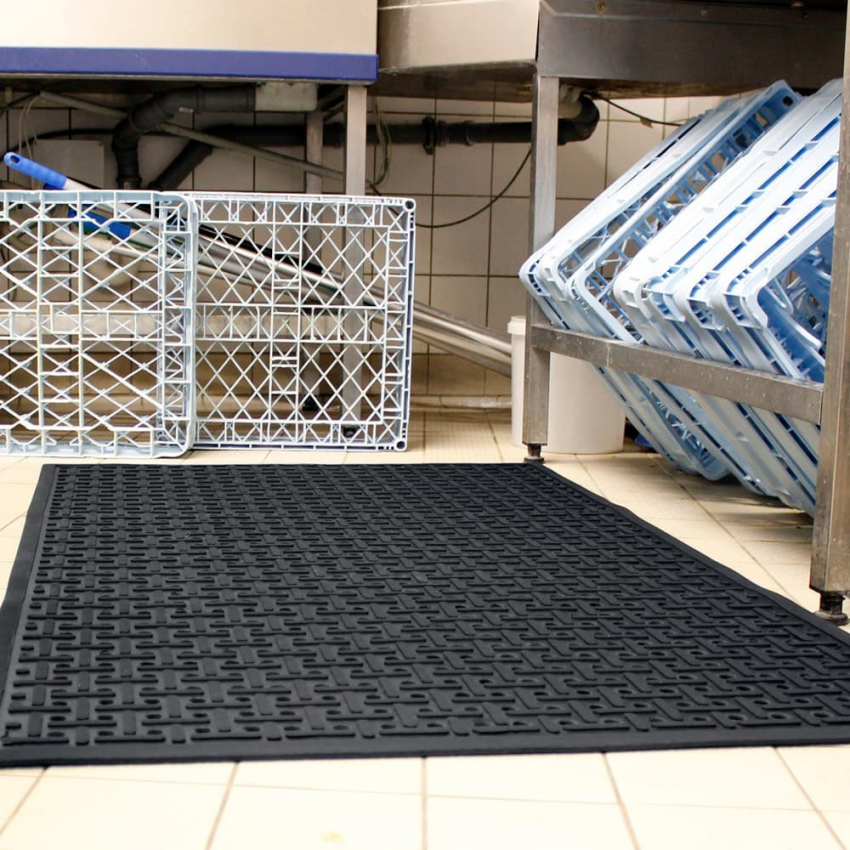









Suitable for harsh industrial environments, food processing plants and professional kitchens, this mat reduces fatigue and falls in areas exposed to oily products. In addition to relieving fatigue, its antibacterial properties prevent the proliferation of bacteria, etc.
Resistant to lubricants, oils, greases and cleaning products, liquid substances are evacuated through drainage holes. Cross-patterned surface ensures exceptional anti-slip properties.
This non-slip kitchen mat provides relief from fatigue. Hygienic antimicrobial properties prevent the growth of fungi and bacteria, making it perfect for kitchen environments.
This product is ideal for harsh industrial environments and for food processing plants, professional kitchens, kitchens, general industry, areas around machine tools where swarf is frequent etc...
![]()
| KM010001 |
Data sheet
| Format | Mat |
| Surface | Openwork |
| Intensity of passage | Intense |
| Properties | Anti-fatigue Antibacterial Draining Non-slip |
| Composition | NBR |
| Thickness | 9 mm |
| Weight | 7,75 kg |
| Resistant to chemicals | Yes |
| Maintenance / Cleaning | high pressure jet |
| Environment | Oily environments Wetlands |
| Operating temperature | -30 °C to 90 °C |
| Intensity of use | Very intense |
| Hardness | 5 MPa |
| Wear index | 2/3 (Very good) 3/3 (Excellent) |
| Anti-slip classification | R11 |
Industrial mats meet the needs of ergonomic workstations and employee well-being.
They prevent:
There are many uses for industrial mats:
Safety criteria: The mat must cover the entire workstation, be firmly attached to the floor, not shift or slide, and have bevelled edges to prevent falls.
Thickness and flexibility criteria: Contrary to what you might think, you shouldn't choose a very thick or very soft mat. The mat should have a certain elasticity, but still allow a comfortable standing position, without the user feeling slumped.
Environmental criteria :
Environmental hazard criteria : To establish more precise characteristics for a mat (antistatic properties or fire resistance etc...) we need to take into account the hazards present in the environment where the mat will be installed.
Where hazardous liquids are present in the working environment, the anti-slip properties and chemical resistance of industrial mats should be taken into account. The presence of openings on mats to allow the evacuation of fluids is essential.
Traffic criteria: We need to take into account the traffic that takes place on the equipment: how many workers can walk on it? How often, etc., in order to choose the most suitable mat.
Prevent the many problems associated with poor workstation ergonomics: RSI, static shock, bacterial proliferation, etc.
We offer a wide choice of industrial mats: on rolls, in standard sizes, made-to-measure or modular mats to suit all types of workstations.